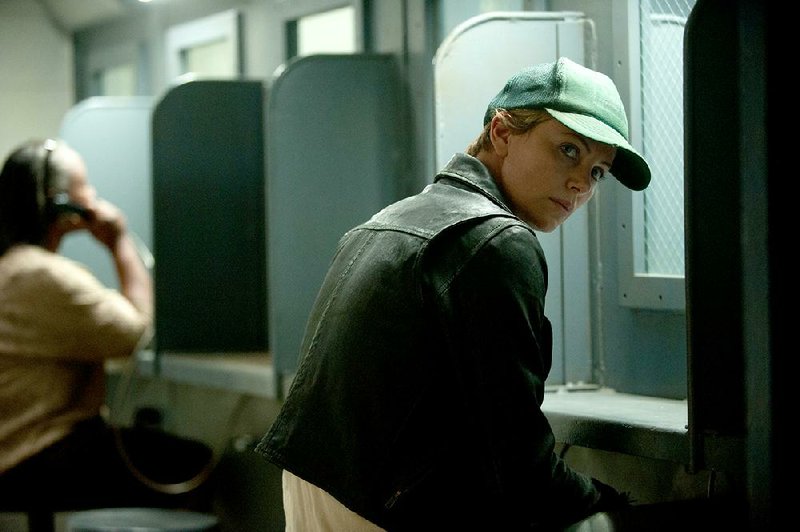A girl gone astray after the brutal murder of her family decides to reopen the case nearly three decades later in Dark Places, French director Gilles Paquet-Brenner's proficient if potboilerish adaptation of Gillian Flynn's bestseller -- published three years before her megahit marriage thriller, Gone Girl.
Starring Charlize Theron as a trauma survivor compelled to revisit the demons of her childhood, and Nicholas Hoult as the self-made detective who guides her through various twists, red herrings and third-act revelations, this plot-heavy suspense flick loses some of the book's originality in translation while failing to channel its sense of Midwestern malaise. But it keeps the guessing game going long enough to compensate for some otherwise shallow characterizations, while Theron offers up an earnest and downbeat turn that says a lot with little dialogue -- playing most of the movie behind a beat-up baseball cap that only partially conceals her killer good looks.
Dark Places
83 Cast: Charlize Theron, Nicholas Hoult, Chloe Grace Moretz, Tye Sheridan, Corey Stoll, Christina Hendricks
Director: Gilles Paquet-Brenner
Rating: R, for some disturbing violence, language, drug use and sexual content
Running time: 113 minutes
Places is unlikely to drum up the same level of debate and dough as Girl, which grossed close to $370 million globally when it came out last fall. It's more of a genre programmer than a conversation starter, adeptly weaving past and present but failing to make much out of them, and should thus score easy points on cable and video on demand while drawing a modest theatrical crowd in the first frame.
Part of what made Flynn's 2009 book so readable was the witty, sarcastic but deeply troubled voice of its first-person narrator, Libby Day (Theron), one of two known survivors of a massacre that took place in 1985 on the family farm in rural Kansas. The other survivor was her teenage brother, Ben (Tye Sheridan in the flashbacks, Corey Stoll in the present), who the 8-year-old Libby (Sterling Jerins) accused of the murders, although it soon becomes clear that her testimony was shaky at best.
Libby has a lot to say about her status as a trauma survivor and emotional trainwreck, profiting off the public's obsession with the Day killings while mocking her "fans" at every turn. (Such observations foreshadow the media feeding frenzy of Gone Girl.) She's a hypocrite and not afraid to say it, a damaged woman-child and complete social outcast, which is what made her such a strong character in the book.
Yet beyond a few opening and closing remarks, Libby's point of view is mostly absent from Paquet-Brenner's script, which juggles a half-dozen narrative strands as it hops back and forth between events leading up to the murder and scenes of the older Libby trying to figure out what happened. She's egged on by Lyle Wirth (Hoult), the creepy-friendly treasurer of a local "Kill Club" whose members obsess over serial killings, family massacres and other such atrocities, trying to finger the true culprits.
Broke and behind on her rent, Libby agrees to help Lyle in exchange for cash, visiting her brother in jail and tracking down leads that include a stripper (Drea de Matteo) who accused Ben of molestation, a deadbeat dad (Sean Bridgers) who acted violently the day of the murder, and a grain dealer (J. LaRose) involved in some very '80s satanic activities. Flashbacks provide further clues, especially when we learn about Ben's relationship with the rich and unstable Diondra (Chloe Grace Moretz) -- something he kept secret from his sisters and mother, Patty (Christina Hendricks), a woman suffering under the weight of four kids and major financial strains.
There's simply too much going on in the book to condense into a two-hour movie, although Paquet-Brenner -- who brought another flashbacking bestseller, Sarah's Key, to the screen in 2010 -- does a decent job packing in as much as possible while helping us connect all the dots. But his emphasis on breakneck storytelling and multiple plot strands misses out on some of the novel's finer points, especially those involving the humiliation suffered by Ben and Libby as poor farm kids growing up in a place where farming is no longer a viable way of life. (The fact that the Kansas-set story was mostly lensed in Louisiana doesn't necessarily help matters, tax credits be damned.)
The strong cast helps make up for the film's overall lack of texture, with Theron conveying her character's sense of inner anger and loss in a few neat gestures, and Hoult making Lyle a likeable weirdo who could be a serial killer himself if he weren't such a goofball. Hendricks is also strong in a role that could have used more screen time, while Moretz is good as a volatile teen and part-time Satan worshipper (even if said worshipping includes, in one instance, watching Dee Snider rant on TV).
Tech contributions are slickly assembled, with cinematographer Barry Ackroyd (The Hurt Locker) providing a somber color palette that adds to the general moodiness, and production designer Laurence Bennett (The Artist) giving the decors a worn-out and neglected look, particularly Libby's cramped Kansas City row house. Editors Douglas Crise (Birdman) and Billy Fox deserve credit for tying up so many loose ends, although the fast pacing and constant crosscutting ultimately gloss over the more intriguing aspects of the story -- one in which the devil most certainly lies in the details.
MovieStyle on 08/07/2015
